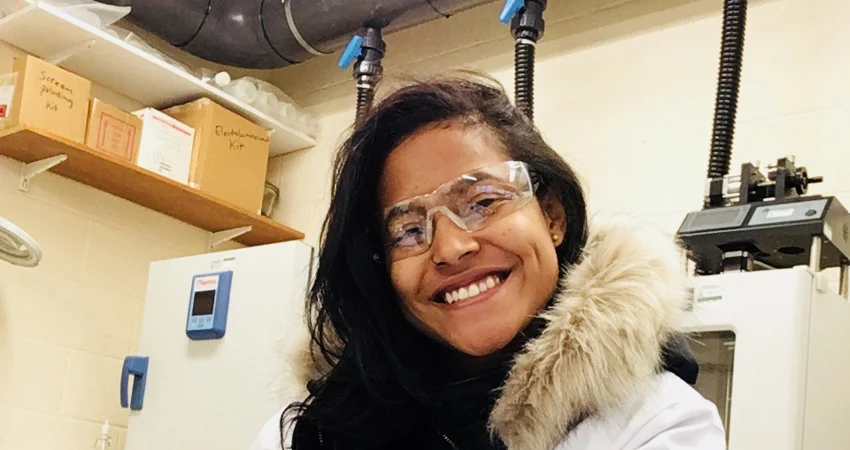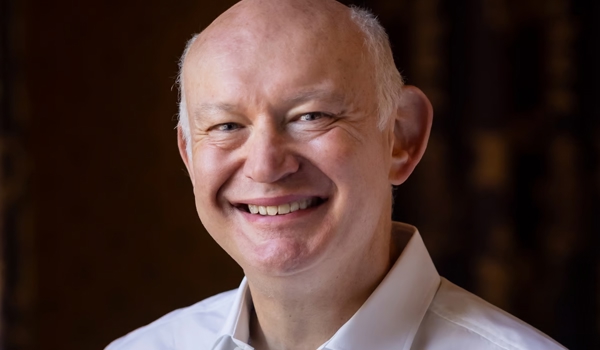07 Mar 2019
DPhil candidate attends Parliament to present her research on medical applications of Metal-Organic Frameworks (MOFs)
Bárbara Souza, DPhil candidate in Engineering Science’s Multifunctional Materials and Composites Laboratory, is attending Parliament on 13 March as part of the STEM for BRITAIN competition to present her research to politicians and a panel of expert judges

STEM for BRITAIN awards aim to encourage, support and promote Britain's early-stage and early-career research scientists, engineers, technologists and mathematicians who are an essential part of continuing progress in UK research and R&D. It also presents an opportunity for presenting frontier UK research and R&D to Members of Parliament at Westminster.
Bárbara’s poster on research about the uses of Metal-Organic Frameworks (MOFs) as drug delivery systems and their integration into polymeric nanofibers for the fabrication of multifunctional wound dressings applied to the active treatment of skin cancer and other chronic skin diseases, will be judged against dozens of other scientists’ research in the only national competition of its kind.
Bárbara was shortlisted from hundreds of applicants to appear in Parliament. She says, “I am thrilled to present my research and show the potential Metal-Organic Frameworks have to overcome current treatment challenges and improve patients’ quality of life whilst reducing the costs of treatment.”
"These early career engineers, mathematicians and scientists are the architects of our future"
Stephen Metcalfe MP, Chairman of the Parliamentary and Scientific Committee, said, “This annual competition is an important date in the parliamentary calendar because it gives MPs an opportunity to speak to a wide range of the country’s best young researchers."
“These early career engineers, mathematicians and scientists are the architects of our future and STEM for BRITAIN is politicians’ best opportunity to meet them and understand their work.”
Bárbara’s research has been entered into the engineering session of the competition, which will end in a gold, silver and bronze prize-giving ceremony. Doctoral student Daniela Massiceti received the Bronze Award in this category in 2018 for her poster ‘A generative model for visual dialogue’, on the use of machine learning and computer vision to build an interactive chat-bot to assist blind people with navigation
Judged by leading academics, the gold medalist receives £2,000, while silver and bronze receive £1,250 and £750 respectively.
The Parliamentary and Scientific Committee provides a liaison between Parliamentarians and scientific bodies, science-based industry and the academic world. It runs the event in collaboration with the Royal Academy of Engineering, the Royal Society of Chemistry, the Institute of Physics, the Royal Society of Biology, The Physiological Society and the Council for the Mathematical Sciences.
Visit the Multifunctional Materials and Composites Laboratory website




